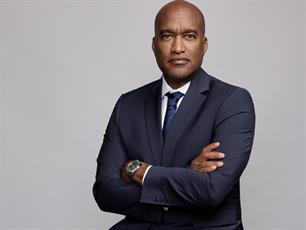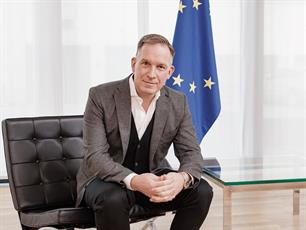Arun Sudhaman 10 Oct 2013 // 12:55PM GMT
PARIS—Dramatic changes are required of PR agencies if they are to flourish, said the heads of FleishmanHillard and GolinHarris at today's ICCO Summit in Paris.
In a session moderated by Holmes Report editor Paul Holmes, FleishmanHillard CEO Dave Senay and GolinHarris CEO Fred Cook explored the investments that their agencies are making as they seek to take on a more central brand-building role and create the 'agency of the future'.
Both men pointed to the way that their firms are being reshaped by changing media trends, amid the launch of today's World PR Report, which reveals the pressing challenges facing the global PR industry
"It’s not because we want to, it’s because we have to. If you were to create the communications industry today, you would not structure it as it is today," said Senay. "As people flow through their days, they make less and less distinction between what is paid, earned, shared and owned."
Much of the discussion focused on the different types of talent that are needed, such as planners and data specialists, and how PR firms can persuade clients to pay for less traditional services.
Cook, for example, said that GolinHarris is currently running a "finances for the future" programme that seeks to help the firm package and sell its services in a totally different way.
"If we can unlock that, we can make a big difference to how we operate," said Cook. "How do you get clients to pay for these things? We are about insights and ideas. That’s the kind of company we want to be in the future. Our clients are used to paying for our hours."
That issue extends to how PR agencies are perceived, often in terms of media relations rather than as a core brand building partner. One way to change that conversation, said Senay, was to come up with more products.
"It’s going to happen one client at a time, one CMO at a time," said Senay. "A product is a way to have a discussion. It’s a language all of its own. Suddenly you are having a different conversation than just talking about top-level media."
When Holmes asked whether holding company ownership was a barrier to these issues, neither CEO ducked the question. "We didn't tell Interpublic what we were doing," said Cook of the GolinHarris restructuring. "We’re not trying to be an ad agency, they are having a tough enough time on their own. Our goal is to be a holistic communications agency."
Senay, meanwhile, admitted that "the more media we buy," — $200m and counting — "the more attention we get from media agencies."
"There was a little bit of nervousness actually about what we are trying to do," explained Senay regarding FleishmanHillard's recent repositioning and efforts to build a more integrated model. "But it will be a long time before we are in there competing with BBDO to launch a Superbowl ad. We are not going to do paid media unless it connects with everything else."
Cook alluded to the courage required of any major internal change when he noted that Golin's new model "exposed a lot of weaknesses at the firm," particularly in terms of people who did not fit the agency's new structure and eventually left.
"We have to start looking at the world much more broadly," concluded Senay. "We have to become very predatory and, in some cases, you really to pay for them."


































.jpg)





.tmb-135x100.jpg)











